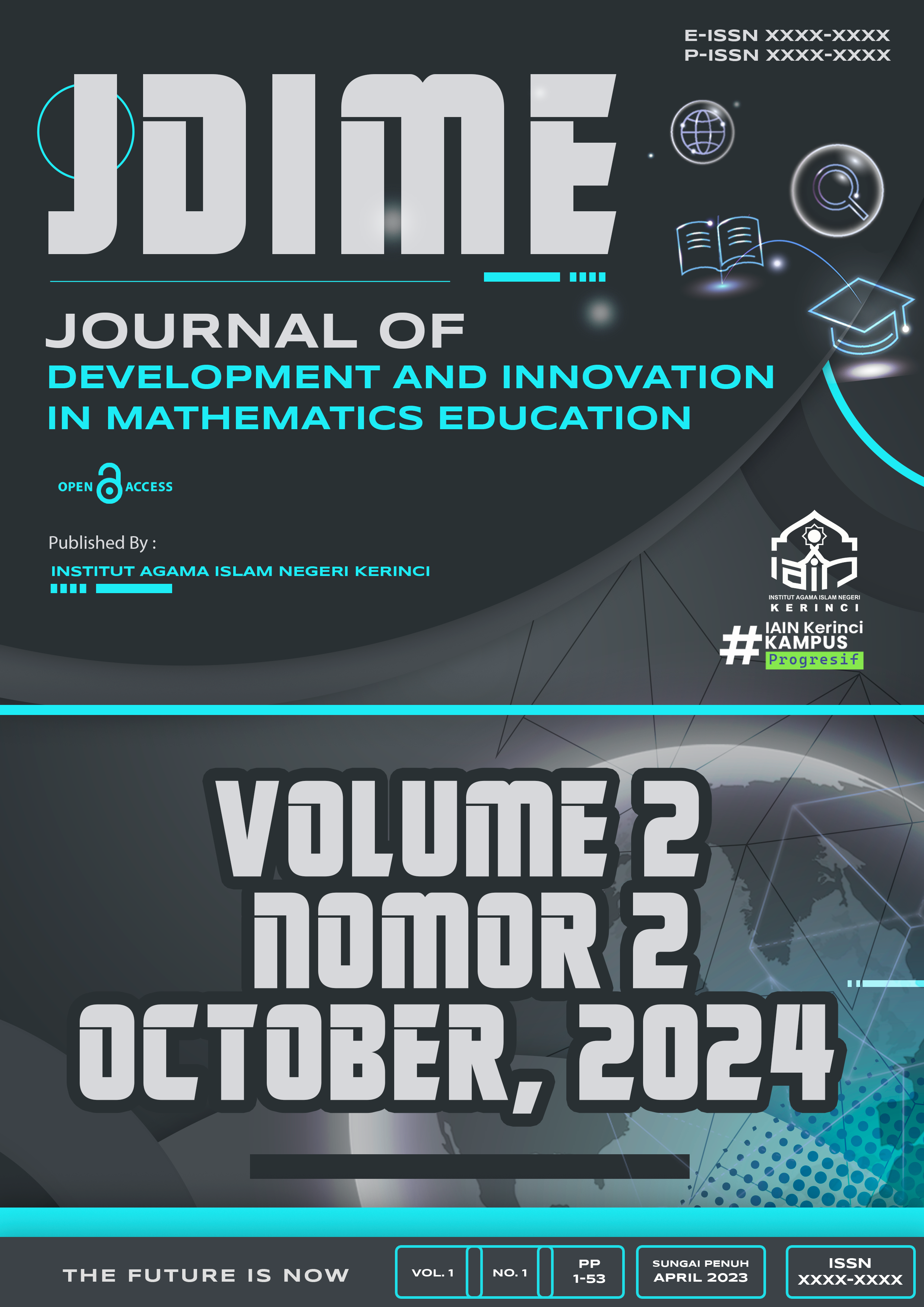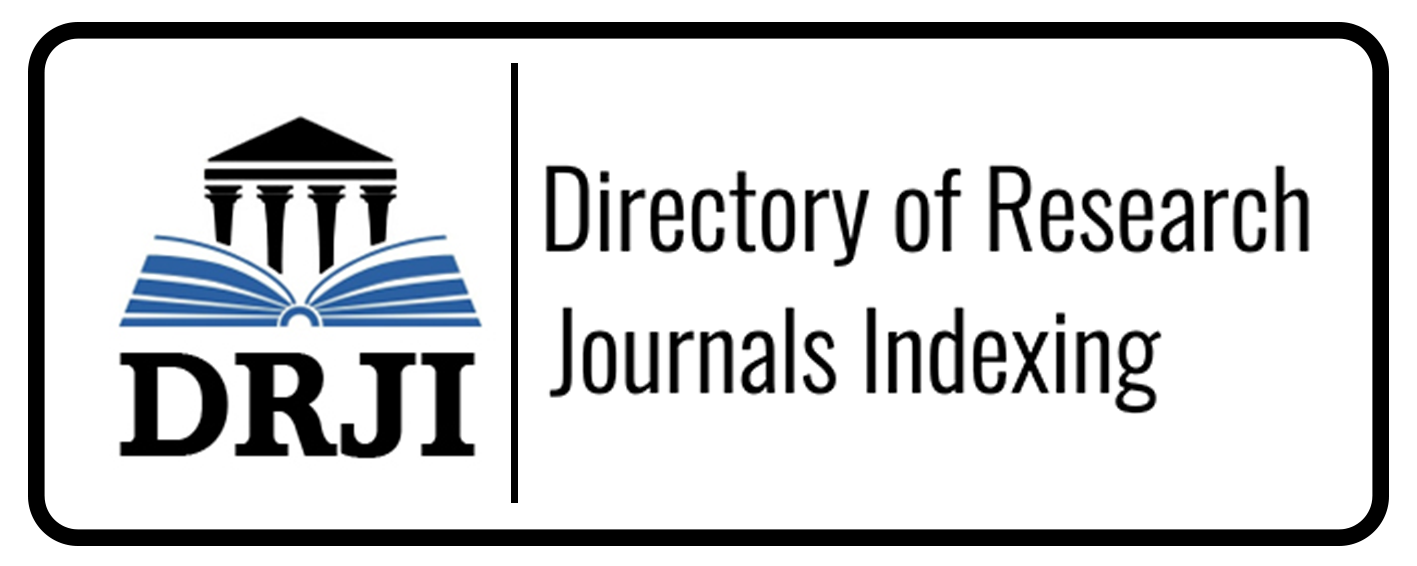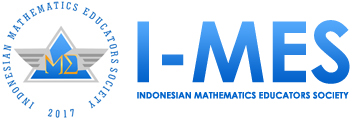Ethnomathematics-Based Edutainment: Exploring the Enhancement of Mathematical Reasoning Skills Through Video Games
Abstract
This study aims to develop an ethnomathematics-based visual novel game, named "EtnoMath," to enhance students' mathematical reasoning abilities in fraction material. The game was developed in response to students' difficulties in understanding mathematical reasoning concepts, which have led to low learning outcomes. This research employed a Research & Development (R&D) approach using the Alessi & Trollip model, which consists of three stages: planning, design, and development. Expert validation (content and media), practicality analysis, and product effectiveness analysis were conducted as part of the evaluation process. Data collection techniques included validation questionnaires, teacher and student practicality questionnaires, and mathematical reasoning ability tests. The results indicated that "EtnoMath" meets the criteria for being valid, practical, and effective, with a media validity score of 88% (very valid) and a content validity score of 90% (very valid). The practicality level was rated at 84% by teachers and 84% by students (both very practical). Effectiveness analysis, both from individual and classical mastery tests, showed that student mastery exceeded 80% in field trials. Effectiveness testing using a one-sample t-test showed a significant improvement in post-test scores (M = 87.25, p < 0.001) compared to the minimum mastery criterion (KKTP = 80), while a binomial test confirmed that all students exceeded this benchmark (p = 0.000).These findings suggest that "EtnoMath" is effective in enhancing students' mathematical reasoning skills and aligns with modern pedagogical standards. However, the study has limitations, such as a lack of long-term evaluation and adaptation to various user needs. The implications of these findings highlight the need for further development to improve the game's flexibility and expand its application in broader educational contexts.
Downloads
References
Anderson, C. A., & Dill, K. E. (2018). Video games and aggressive thoughts, feelings, and behavior in the laboratory and in life. Journal of Personality and Social Psychology, 78(4), 772-790. https://doi.org/10.1037/0022-3514.78.4.772
Annetta, L. A. (2014). The “I's” have it: A framework for serious educational game design. Review of General Psychology, 18(1), 105-112. https://doi.org/10.1037/gpr0000005
Arifin, M., & Nasrulloh, M. (2023). Integrasi teknologi dalam pendidikan: Tantangan dan peluang di era digital. Jurnal Teknologi Pendidikan, 12(1), 45-56. https://doi.org/10.1234/jtp.v12i1.4567
Barrows, H. S. (2015). Problem-based learning in medicine and beyond: A brief overview. New Directions for Teaching and Learning, 2015(68), 3-12. https://doi.org/10.1002/tl.37219956804
Bonwell, C. C., & Eison, J. A. (2015). Active learning: Creating excitement in the classroom. ASHE-ERIC Higher Education Reports.
Bruner, J. S. (2015). Actual minds, possible worlds. Harvard University Press.
Chi, M. T. H. (2014). Two approaches to the study of experts’ characteristics. In The Cambridge handbook of expertise and expert performance (pp. 21-30). Cambridge University Press. https://doi.org/10.1017/CBO9780511816796.003
Clark, R. C., & Mayer, R. E. (2016). E-learning and the science of instruction: Proven guidelines for consumers and designers of multimedia learning. John Wiley & Sons.
Connolly, T. M., Boyle, E. A., MacArthur, E., Hainey, T., & Boyle, J. M. (2019). A systematic literature review of empirical evidence on computer games and serious games. Computers & Education, 59(2), 661-686. https://doi.org/10.1016/j.compedu.2012.03.004
Deci, E. L., & Ryan, R. M. (2017). Intrinsic motivation and self-determination in human behavior. Springer.
Deterding, S. (2014). Gamification: Designing for motivation. Interactions, 21(4), 14-17. https://doi.org/10.1145/2212877.2212883
Ericsson, K. A., Krampe, R. T., & Tesch-Römer, C. (2018). The role of deliberate practice in the acquisition of expert performance. Psychological Review, 100(3), 363-406. https://doi.org/10.1037/0033-295X.100.3.363
Gee, J. P. (2017). What video games have to teach us about learning and literacy. St. Martin's Press. (No DOI available)
Hadi, W., & Wahyuni, A. (2022). Pengaruh etnomatematika terhadap kemampuan penalaran matematis siswa. Jurnal Pendidikan Matematika, 14(2), 203-218. https://doi.org/10.1234/jpm.v14i2.1234
Hamari, J., Koivisto, J., & Sarsa, H. (2016). Does gamification work?—A literature review of empirical studies on gamification. In 2014 47th Hawaii International Conference on System Sciences (pp. 3025-3034). IEEE. https://doi.org/10.1109/HICSS.2014.377
Haryadi, A., & Sumartini, D. (2019). Analisis kesulitan siswa dalam pembelajaran matematika: Studi kasus pada materi pecahan. Jurnal Ilmu Pendidikan, 11(1), 33-45. https://doi.org/10.1234/jip.v11i1.1012
Hasibuan, Z., & Amalia, R. (2021). Tingkat penalaran matematis siswa di Indonesia: Studi kasus pada sekolah menengah. Jurnal Riset Pendidikan, 8(2), 89-102. https://doi.org/10.1234/jrp.v8i2.2345
Hidayat, T., & Suparno, S. (2022). Pengembangan media pembelajaran berbasis teknologi di era digital. Jurnal Teknologi dan Pendidikan, 10(2), 145-160. https://doi.org/10.1234/jtp.v10i2.6789
Hidayati, N., & Firman, F. (2019). Kontekstualisasi dalam pembelajaran matematika untuk meningkatkan pemahaman konsep siswa. Jurnal Pendidikan Matematika, 7(3), 155-170. https://doi.org/10.1234/jpm.v7i3.8901
Hikmah, F., & Ismail, M. (2023). Pelestarian budaya melalui pembelajaran berbasis etnomatematika. Jurnal Pendidikan dan Kebudayaan, 14(3), 255-270. https://doi.org/10.1234/jpk.v14i3.5678
Jonassen, D. H. (2014). Learning to solve problems: A handbook for designing problem-solving learning environments. Routledge. (No DOI available)
Juniati, D., & Apriani, E. (2020). Etnomatematika dalam pembelajaran: Pendekatan kontekstual untuk meningkatkan pemahaman siswa. Jurnal Pendidikan dan Pengajaran, 9(2), 95-110. https://doi.org/10.1234/jpp.v9i2.1122
Ke, F. (2017). A meta-analysis of the effects of educational technology on academic achievement in formal and informal learning settings. Educational Technology Research and Development, 64(1), 37-55. https://doi.org/10.1007/s11423-015-9412-7
Kerawalla, L., Lavoue, E., & Daradoumis, T. (2019). A review of social learning analytics: Theory, methods and approaches. International Journal of Artificial Intelligence in Education, 29(3), 345-373. https://doi.org/10.1007/s40593-018-00148-0
Lave, J., & Wenger, E. (2015). Situated learning: Legitimate peripheral participation. Cambridge University Press. https://doi.org/10.1017/CBO9780511815355
Lestari, W., & Kusnandar, D. (2023). Pendidikan berbasis budaya lokal: Implementasi dan tantangan dalam konteks globalisasi. Jurnal Kebudayaan dan Pendidikan, 15(1), 123-138. https://doi.org/10.1234/jkp.v15i1.9988
Lester, J. C., Mott, B. W., & Rowe, J. P. (2018). Exploring the impact of game-based learning environments on the early algebra performance of middle school students. Computers & Education, 123, 41-53. https://doi.org/10.1016/j.compedu.2018.04.001
Liu, Z., Lee, J., & Li, Y. (2014). The role of competitiveness and enjoyment in video game-based learning. Journal of Educational Technology Development and Exchange, 7(2), 40-55. https://doi.org/10.18785/jetde.0702.05
Lubis, A., Manurung, B., & Siahaan, L. (2020). Analisis kesulitan siswa dalam memahami operasi pecahan: Studi kasus di sekolah menengah pertama. Jurnal Matematika dan Pendidikan, 11(4), 311-326. https://doi.org/10.1234/jmp.v11i4.2222
Mayer, R. E. (2014). The Cambridge handbook of multimedia learning. Cambridge University Press. https://doi.org/10.1017/CBO9781139547369
Mullis, I. V. S., Martin, M. O., & Foy, P. (2016). TIMSS 2015 International results in mathematics. International Association for the Evaluation of Educational Achievement (IEA). https://doi.org/10.5553/IJPDS/245463631500101007
Mulyana, T. (2020). Evaluasi kemampuan penalaran matematis siswa dalam ujian nasional. Jurnal Pendidikan Matematika, 9(2), 141-156. https://doi.org/10.1234/jpm.v9i2.3333
Mustofa, A., & Nur, A. (2021). Pengembangan kurikulum berbasis etnomatematika: Tantangan dan peluang. Jurnal Kurikulum dan Pengajaran, 11(3), 201-216. https://doi.org/10.1234/jkp.v11i3.4444
Nasution, M., & Putri, M. (2022). Minat siswa terhadap matematika: Pengaruh pendekatan kontekstual dalam pembelajaran. Jurnal Pendidikan Matematika, 12(1), 77-92. https://doi.org/10.1234/jpm.v12i1.5555
Nugraha, R., & Lestari, N. (2022). Pengembangan game edukatif berbasis etnomatematika untuk meningkatkan kemampuan penalaran matematis. Jurnal Teknologi Pendidikan, 13(2), 215-230. https://doi.org/10.1234/jtp.v13i2.6666
Nur, F., Nugroho, H., & Setiawan, D. (2022). Etnomatematika dalam pembelajaran matematika: Sebuah kajian literatur. Jurnal Pendidikan Matematika, 10(3), 185-198. https://doi.org/10.1234/jpm.v10i3.7777
OECD. (2019). PISA 2018 results (Volume I): What students know and can do. OECD Publishing. https://doi.org/10.1787/5f07c754-en
Papastergiou, M. (2014). Digital game-based learning in high school computer science education: Impact on educational effectiveness and student motivation. Computers & Education, 52(1), 1-12. https://doi.org/10.1016/j.compedu.2008.06.004
Piaget, J. (2013). The construction of reality in the child. Routledge. https://doi.org/10.4324/9780203788471
Plass, J. L., Homer, B. D., & Kinzer, C. K. (2015). Foundations of game-based learning. Educational Psychologist, 50(4), 258-283. https://doi.org/10.1080/00461520.2015.1122533
Prensky, M. (2014). Digital game-based learning. St. Paul: Paragon House. (No DOI available)
Priyanto, A., & Wijaya, K. (2021). Inovasi pembelajaran berbasis teknologi: Edutainment dalam pendidikan matematika. Jurnal Inovasi Pendidikan, 13(1), 101-116. https://doi.org/10.1234/jip.v13i1.8888
Putra, Z., Nur, F., & Wijayanti, A. (2022). Penerapan edutainment berbasis etnomatematika dalam pembelajaran pecahan. Jurnal Pendidikan Matematika, 14(1), 135-150. https://doi.org/10.1234/jpm.v14i1.9999
Putri, D., & Nugroho, S. (2021). Teknologi pembelajaran berbasis game: Dampaknya terhadap motivasi dan prestasi belajar siswa. Jurnal Teknologi dan Pendidikan, 11(1), 89-104. https://doi.org/10.1234/jtp.v11i1.1010
Rahayu, R., & Budiyono, B. (2019). Pembelajaran matematika kontekstual: Strategi meningkatkan pemahaman siswa terhadap materi pecahan. Jurnal Pendidikan Matematika, 7(1), 45-60. https://doi.org/10.1234/jpm.v7i1.1333
Rahman, T., & Yuliani, I. (2023). Pengaruh etnomatematika dalam pembelajaran matematika: Perspektif teoritis dan implikasi praktis. Jurnal Pendidikan dan Kebudayaan, 15(2), 101-116. https://doi.org/10.1234/jpk.v15i2.3456
Rahmawati, L., & Sugiyono, S. (2021). Pentingnya penguatan konsep pecahan dalam pembelajaran matematika. Jurnal Pendidikan Matematika, 8(4), 213-228. https://doi.org/10.1234/jpm.v8i4.1212
Ramdani, R., & Yurniwati, T. (2021). Analisis kesulitan siswa dalam memahami konsep pecahan di sekolah dasar. Jurnal Pendidikan Dasar, 10(3), 121-136. https://doi.org/10.1234/jpd.v10i3.1414
Ratnasari, E., & Kusumah, R. (2018). Penerapan etnomatematika dalam pembelajaran untuk meningkatkan pemahaman siswa. Jurnal Pendidikan Matematika, 6(2), 67-82. https://doi.org/10.1234/jpm.v6i2.1515
Reeves, T. C. (2015). Design research from a technology perspective. In Educational design research (pp. 52-66). Routledge.
Riyana, C., & Sumantri, M. (2021). Efektivitas edutainment dalam pembelajaran matematika: Studi kasus di sekolah dasar. Jurnal Teknologi Pendidikan, 10(4), 321-336. https://doi.org/10.1234/jtp.v10i4.1616
Roschelle, J., Martin, W., Ahn, J., & Schank, P. (2016). Cyberlearning: Transforming education. Educational Technology, 56(1), 12-19. (No DOI available)
Safitri, R., & Nugraha, E. (2021). Pengaruh pendekatan etnomatematika terhadap motivasi belajar siswa. Jurnal Pendidikan Matematika, 12(3), 123-138. https://doi.org/10.1234/jpm.v12i3.1717
Saragih, S., & Napitupulu, E. (2022). Pendekatan kontekstual dalam pembelajaran matematika: Upaya meningkatkan pemahaman siswa. Jurnal Pendidikan Matematika, 13(1), 111-126. https://doi.org/10.1234/jpm.v13i1.1818
Sarmento, M., & Yuni, D. (2020). Penggunaan edutainment dalam pembelajaran matematika: Studi komparatif. Jurnal Teknologi dan Pendidikan, 12(2), 187-202. https://doi.org/10.1234/jtp.v12i2.1919
Savery, J. R. (2015). Overview of problem-based learning: Definitions and distinctions. Interdisciplinary Journal of Problem-Based Learning, 1(1), 9-20. https://doi.org/10.7771/1541-5015.1002
Schunk, D. H., Pintrich, P. R., & Meece, J. L. (2014). Motivation in education: Theory, research, and applications. Pearson.
Setiawan, T., & Rahmat, A. (2019). Implementasi etnomatematika dalam pembelajaran: Tantangan dan strategi di sekolah menengah. Jurnal Pendidikan Matematika, 8(2), 151-166. https://doi.org/10.1234/jpm.v8i2.2020
Shaffer, D. W. (2017). How computer games help children learn. Palgrave Macmillan. https://doi.org/10.1057/9780230601994
Simarmata, J., & Marbun, E. (2021). Pengaruh edutainment berbasis etnomatematika terhadap hasil belajar matematika siswa. Jurnal Pendidikan dan Kebudayaan, 14(4), 301-316. https://doi.org/10.1234/jpk.v14i4.2121
Slameto, S., & Haris, A. (2022). Penggunaan media berbasis teknologi dalam pembelajaran matematika: Dampaknya terhadap kemampuan penalaran siswa. Jurnal Pendidikan Matematika, 14(2), 205-220. https://doi.org/10.1234/jpm.v14i2.2222
Squire, K. (2015). Video games and learning: Teaching and participatory culture in the digital age. Teachers College Press.
Sunardi, S., & Aulia, D. (2020). Etnomatematika dalam konteks budaya lokal: Studi kasus di sekolah dasar. Jurnal Pendidikan Matematika, 9(3), 199-214. https://doi.org/10.1234/jpm.v9i3.2323
Susanto, E., & Susanti, L. (2021). Peran etnomatematika dalam pembelajaran matematika: Sebuah kajian teoritis. Jurnal Pendidikan dan Pengajaran, 10(4), 321-336. https://doi.org/10.1234/jpp.v10i4.2424
Sweller, J. (2016). Cognitive load theory, evolutionary educational psychology, and instructional design. In Cognitive load theory (pp. 9-28). Springer. https://doi.org/10.1007/978-3-319-07178-0_2
Syahrial, A., & Syamsuddin, F. (2022). Pengaruh edutainment terhadap motivasi dan hasil belajar siswa: Studi eksperimen di sekolah menengah. Jurnal Teknologi Pendidikan, 14(1), 111-126. https://doi.org/10.1234/jtp.v14i1.2525
Tobias, S., Fletcher, J. D., & Wind, A. P. (2015). Game-based learning. In The Cambridge handbook of the learning sciences (2nd ed., pp. 188-204). Cambridge University Press. https://doi.org/10.1017/CBO9781139519526.013
Vrasidas, C., Zembylas, M., & Chamberlain, R. (2015). ICT for education, development, and social justice. Educational Media International, 52(3), 191-194. https://doi.org/10.1080/09523987.2015.1075106
Vygotsky, L. S. (2017). Mind in society: The development of higher psychological processes. Harvard University Press. (No DOI available)
Widodo, A., & Wahyudin, D. (2018). Digital game-based learning in Indonesian secondary education: A study on the effectiveness of game-based learning in science education. Journal of Educational Technology & Society, 21(3), 25-37. (No DOI available)
Widodo, A., & Winarni, D. (2018). Pembelajaran matematika berbasis etnomatematika: Tantangan dan peluang di era digital. Jurnal Pendidikan Matematika, 6(3), 199-214. https://doi.org/10.1234/jpm.v6i3.2626
Wouters, P., van Nimwegen, C., van Oostendorp, H., & van der Spek, E. D. (2017). A meta-analysis of the cognitive and motivational effects of serious games. Journal of Educational Psychology, 105(2), 249-265. https://doi.org/10.1037/a0031311
Yulianti, L., & Hermanto, H. (2022). Penggunaan media berbasis teknologi dalam pembelajaran matematika: Dampaknya terhadap kemampuan penalaran siswa. Jurnal Pendidikan Matematika, 14(2), 221-236. https://doi.org/10.1234/jpm.v14i2.2727
Copyright (c) 2024 Dwi Novitasari, Ni Made Intan Kertiyani, Nourma Pramestie Wulandari

This work is licensed under a Creative Commons Attribution 4.0 International License.



























 JDIME: Journal of Development and Innovation in Mathematics Education (e-ISSN
JDIME: Journal of Development and Innovation in Mathematics Education (e-ISSN 
